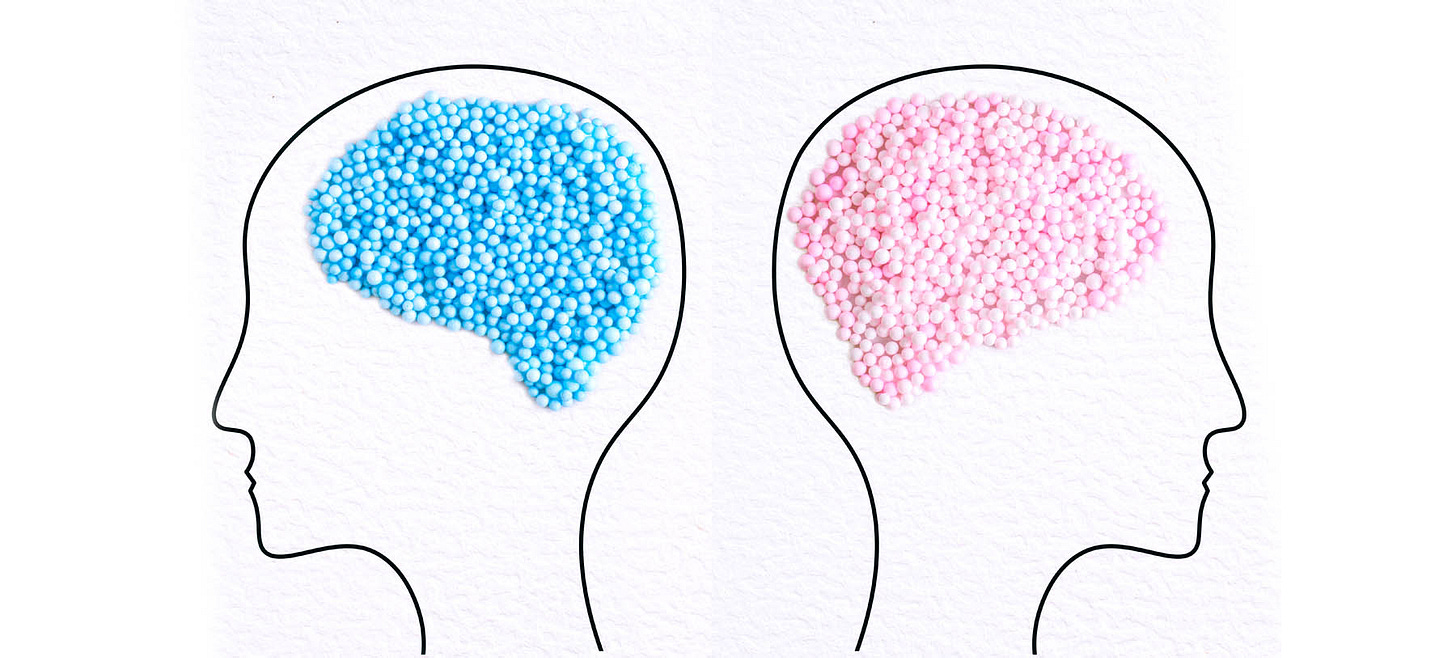Why Men Avoid Therapy: A Neurobiological and Cultural Perspective
Men often avoid therapy due to socially constructed masculine identity that rejects vulnerability. While women seek help, men self-medicate.
When it comes to mental health, there's a striking gender disparity that demands our attention. As a example, in France, the suicide rate for men is 21 per 100,000, compared to 6.4 for women. Yet men are dramatically underrepresented in psychological care—comprising only 30% of patients at suicide prevention centers. This isn't because men suffer less; it's because they seek help less.
What's fascinating about this particular phenomenon is how thoroughly it demolishes simplistic nature-versus-nurture debates. This isn't about genetics or epigenetics—it's about the intricate dance between our evolutionary heritage and cultural programming.
The Masculine Trap
This reluctance to seek help is one of the rare domains where gender socialization disadvantages men. The societal expectation that men should be self-sufficient problem-solvers creates a dangerous feedback loop. When experiencing psychological distress, men often resort to harmful compensatory mechanisms—most notably alcohol consumption or other addictive behaviors, which paradoxically increases suicide risk.
This pattern is pure social construction. There's nothing in our genome that codes for "don't ask for directions" or "don't discuss your feelings." Yet these behaviors are so deeply ingrained in masculine identity that they might as well be written in our DNA.
The Intimacy Paradox
A fascinating perspective from Canadian researchers suggests that for many men, intimacy is conflated with sexuality. This creates a peculiar bottleneck: men typically confide emotional matters exclusively to sexual partners, rarely to friends, and almost never to strangers. When you consider that a psychotherapist is essentially a professional stranger asking you to disclose your innermost vulnerabilities, the resistance becomes understandable.
We see this reflected in health metrics across the board. Single women maintain roughly the same level of healthcare engagement as their partnered counterparts. Single men, however, show significantly lower rates of medical follow-up than men in relationships. Without a partner to either encourage or legitimize health-seeking behavior, many men simply opt out.
The Generational Shift
There's reason for optimism, however. There’s a significant generational difference in attitudes toward mental health. If you divide male patients in cluster of two age groups—those over 70 and those under 30—you notice that the middle generation—men between 30 and 70—remain conspicuously absent.
This suggests a cultural shift in progress. Younger men seem to have internalized a more progressive attitude toward psychological care. For them, consulting a psychotherapist carries less stigma; mental health has become a legitimate concern worth addressing.
Risk Factors and Transitions
Life transitions emerge as critical vulnerability periods. Separations, divorces, relocations, job losses—any rupture in established patterns can destabilize even the most resilient among us. These transitions demand significant psychological resources, leaving us vulnerable when multiple stressors coincide.
Particularly telling is the position that men have about sexual violence. When male patients are asked about past sexual trauma, one in four report such experiences. Most disclose this information for the first time, having never before been asked.
The Way Forward
The challenge now is not to convince men that mental health is important - it's to create accessible channels for them to engage with it.
Even more importantly in my experience, psychotherapists must be able to provide a pragmatic framework that allows men to feel they are being given the tools they need to work on their own recovery.
Traditional psychotherapy, with its emphasis on verbal emotional expression, often alienates men. More medicalized approaches, which frame psychological distress as treatable conditions rather than personal failures, tend to meet with less resistance.
What's needed is a cultural shift toward "positive peer pressure"—role models who normalize psychological care through their own example. When respected figures in a man's life openly discuss their own therapeutic journeys, they create permission structures that can overcome ingrained resistance.
This isn't about treating everyone like a “snowflake". It's about recognizing that beneath the stoic exterior many men present to the world, there often lies genuine suffering that deserves attention and care. In a society that still equates masculinity with invulnerability, sometimes the bravest thing a man can do is admit he needs help.
As we work to create more benevolent environments for discussing mental health, we may find that what we're really building is a more compassionate society for everyone.


